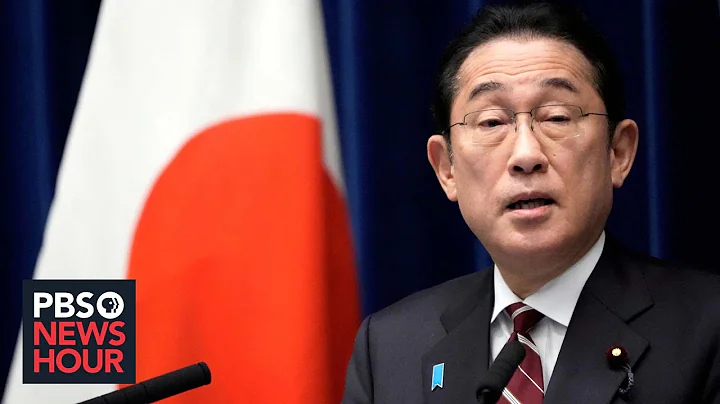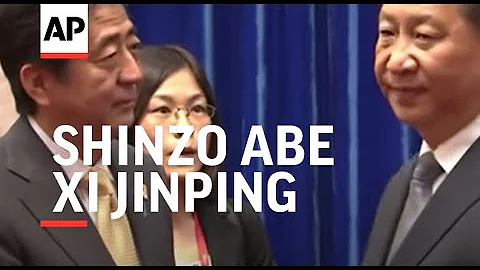After Abe ends, Fumio Kishida is likely to let go of his hands. Kishida, who used to compete with Abe on "who is more ruthless towards China", may continue Abe's old path in his attitude towards China, or even be tougher, but he will be tougher on China. There may be changes in economic policy.
Three days after the death of Shinzo Abe, Japan's Liberal Democratic Party won a victory in the Senate election. This result will allow Japanese Prime Minister Fumio Kishida to not dissolve the House of Representatives midway and continue to work until the expiration of 2025, winning a stable "golden three years."

Previously, the retired Shinzo Abe had absolute say in the Liberal Democratic Party . As the leader of the "Abe faction", the largest faction in the party, without Abe to balance the extreme voices in the party, Japan will be more likely to play a role in regional affairs in the future. More aggressive.
Japan has always been making trouble on issues such as the Taiwan Strait and the South China Sea. Before Shinzo Abe was assassinated, he even declared in a speech at the "National Policy Research Institute" that "whatever happens to Taiwan, China, means Japan will have trouble." Abe's political ideology has also had a profound impact on Fumio Kishida. Although the "Abe faction" temporarily lacks a leader, However, Fumio Kishida cannot ignore the voices of the right-wing forces within the party internally, and he must follow the attitude of the West externally. Therefore, his attitude towards China will basically continue Abe's style.
Combined with Kishida Fumio's actions of participating in the G7 and then the NATO summit, it shows that Fumio Kishida is more "Western" than Abe. Therefore, in order to consolidate his personal influence, it is not ruled out that his attitude will become tougher.
Although its attitude towards China will be tough, from another perspective, it is impossible for Japan to completely break away from China in the economic and trade field.

Currently, Japan is facing the problems of rising prices, devaluation of the yen, and a sharp drop in people's consumption levels. To a large extent, these are the sequelae of the "six sharp swords" fired before and after Abenomics . In the past, being restrained by the Abe faction, Kishida Fumio basically followed Abe's old path in terms of economics and politics.
Now that Abe has suddenly fallen, the Abe faction is leaderless. Taking advantage of this gap, Kishida Fumio recently stated that he will revise new measures and security strategies to address economic issues such as inflation. He is likely to make certain revisions to "Abenomics" because in an interview with British media last year, Kishida said He once said that Abenomics did not bring a virtuous cycle to the Japanese economy.
"Kishida Economics" is more described as "new capitalism". The plan is not to increase the income of specific classes, but to increase the income of a wide range of people, promote consumption, and achieve a virtuous cycle of the economy, aiming to reduce the current worsening situation in Japan. The divide between rich and poor.
The Japanese economy is not optimistic now. In the first quarter of 2022, Japan's real gross domestic product (GDP) fell by 0.2% month-on-month. The continued decline in the yen exchange rate has also caused a surge in imported inflationary pressure, posing a challenge to Japan's economic prospects. At this time, foreign trade and economic cooperation become very important.
Under this circumstance, Japan's trade with the United States and the European Union has no room for expansion, but its trade with China still has room for expansion, so Kishida is likely to pay more attention to economic and trade relations with China.
After all, China is an important force driving Japan's foreign trade and economic growth. Japan's economic recovery cannot be separated from the support of China's large market. Although Japan has actively joined the Indo-Pacific economic framework proposed by US President Biden , because the background of this framework does not belong to the free trade agreement and economic cooperation agreement, this framework is only more beneficial to the United States.

The United States will not reduce tariffs for member states participating in the Indo-Pacific Economic Framework, so it is basically impossible for Japan to rely on the Indo-Pacific Economic Framework to enter the markets of the United States and other member states. However, there is an RCEP framework between China and Japan. Under this framework, China and Japan and other countries can enjoy tariff reduction and preferential treatment. and RCEP member states can easily access the supply chain between regional countries and have stronger exports. Competitiveness.
Therefore, under Fumio Kishida’s rule, Japan’s attitude towards China will become increasingly ambivalent. On the one hand, it is tough, but on the other hand, it cannot do without the Chinese market. Instead, it will pay more attention to its economy and trade with China.





















